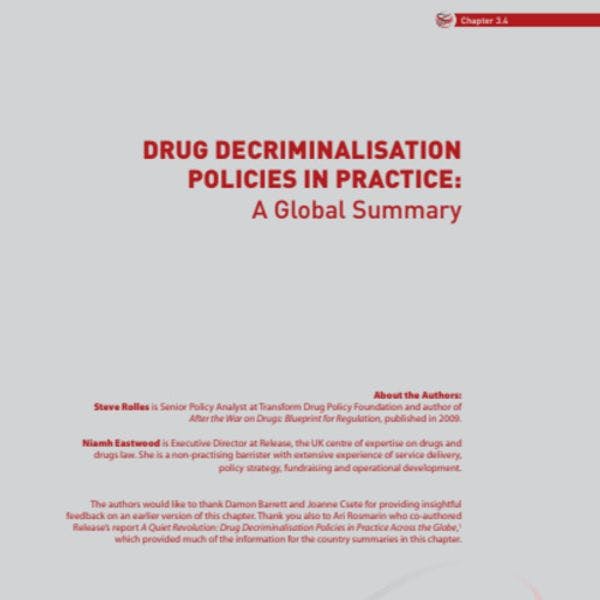Políticas de descriminalización de drogas en la práctica: panorama global
Steve Rolles y Niamh Eastwood, de Transform, exploran una serie de cuestiones en torno a la descriminalización de las drogas y analizan cómo se han aplicado las políticas de descriminalización en todo el mundo. Más información, en inglés, está disponible abajo.
Suscríbase a las Alertas mensuales del IDPC para recibir información sobre cuestiones relacionadas con políticas sobre drogas.
By Steve Rolles and Niamh Eastwood
Decriminalisation of drug possession or use can be defined as ‘the removal of sanctions under criminal law, with optional use of administrative sanctions, such as the application of civil fines or court-ordered therapeutic responses.’ Decriminalisation is often mistakenly understood to mean complete removal or abolition of possession offences, or confused with ‘legalisation’ (legal regulation of drug production and availability). Under decriminalisation regimes, possession and use of small amounts of drugs are still unlawful but not criminal offences. The first half of this chapter examines the harms associated with criminalising people who use drugs (PWUD) and outlines key considerations for the implementation of decriminalisation of drug possession. The second portion considers models of decriminalisation of drug possession adopted by different countries around the world. It also provides recommendations that should be taken into account when implementing decriminalisation of drug possession and highlights the growing support for adopting such a model.
Keep up-to-date with drug policy developments by subscribing to the IDPC Monthly Alert
